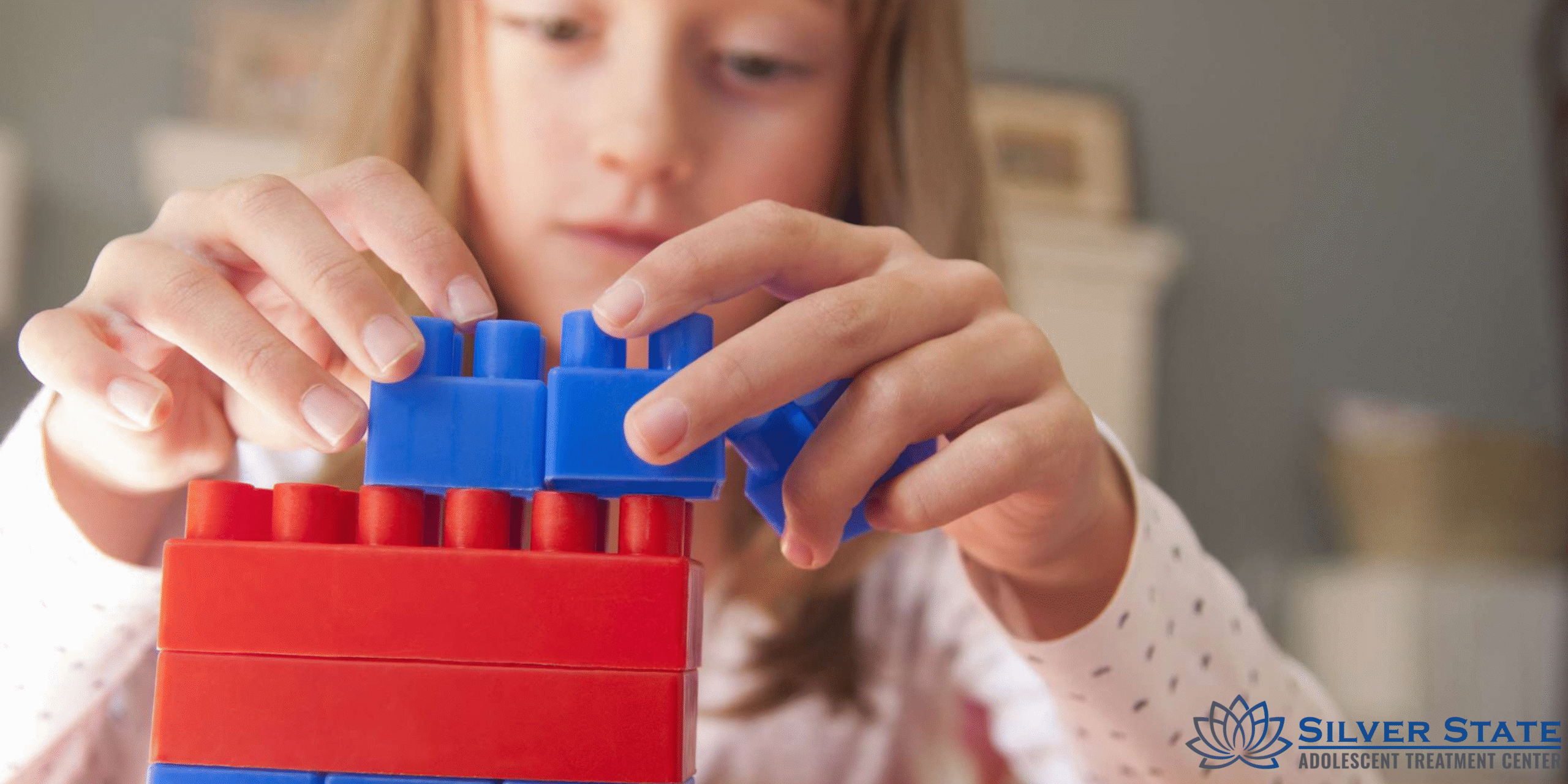How Specialized Programs Address Youth Obsessive-Compulsive Disorder

Table of Contents
Key Takeaways
- If left untreated, youth obsessive-compulsive disorder (OCD) can impact academics, relationships, and overall quality of life.
- Teens with OCD are at greater risk of drug abuse, particularly cocaine addiction, making early treatment essential.
- Specialized rehab programs in Las Vegas provide comprehensive care tailored to the needs of young people.
- Evidence-based therapies combined with family involvement improve long-term treatment outcomes.
- Talking openly about the connection between OCD and addiction helps teens build resilience and avoid harmful coping mechanisms.
Introduction
Obsessive-compulsive disorder in teens is more than just worrying or striving for perfection—it is a significant mental health condition that can interfere with everyday functioning. Many young individuals with OCD struggle with unwanted thoughts, repetitive behaviors, and overwhelming anxiety. If left unaddressed, youth obsessive-compulsive disorder can escalate, leading to depression, academic decline, or substance misuse.For families in Nevada, teen rehab programs and mental health institutions in Las Vegas play a vital role in providing structured treatment and personalized support. These facilities are uniquely equipped to address both the symptoms of OCD and the heightened risk of drug dependency, ensuring that young people receive well-rounded care. Recognizing the value of specialized treatment is the first step toward healthier futures.
Why Does Youth Obsessive-Compulsive Disorder Need Special Care?
Teenagers often present OCD symptoms differently from adults. While adults may recognize their obsessive thoughts as irrational, adolescents may struggle to distinguish between genuine concerns and intrusive worries. This lack of awareness makes early diagnosis and treatment more difficult.Specialized youth programs foster environments where teens feel supported and understood. Techniques like cognitive-behavioral therapy (CBT) and family-centered interventions are proven to reduce OCD’s impact. According to the National Institute of Mental Health, early and evidence-based intervention helps prevent long-term consequences such as poor academic performance, damaged relationships, and reliance on harmful coping mechanisms.What Is the Link Between OCD and Teens Who Use Drugs?
The connection between OCD and substance misuse is concerning. Many teens with untreated OCD turn to alcohol or drugs as a way to quiet obsessive thoughts or ease compulsions. Unfortunately, this temporary relief often creates greater problems.Some adolescents, for example, misuse stimulants like cocaine, mistakenly believing they help improve focus or reduce anxiety. This self-medication can lead to cocaine addiction—a dangerous cycle requiring dual treatment. Programs that address both OCD and substance use simultaneously ensure neither issue is overlooked.
What Role Do Las Vegas Teen Rehab Programs Play in Treating OCD?
For many families, Las Vegas rehab centers are the first point of intervention. These facilities now integrate mental health treatment alongside substance treatment, recognizing the overlap between emotional struggles and risky behaviors.Teens in these programs benefit from:- Comprehensive evaluations to identify OCD and any co-occurring disorders.
- Individual therapy to develop healthy coping strategies.
- Group therapy to reduce isolation and build peer support.
- Family therapy to strengthen communication and provide tools for recovery at home.
How Can Family Dynamics Affect Teens’ Recovery From OCD?
Family involvement is essential in recovery. Stressful home environments, unrecognized symptoms, or enabling behaviors may worsen OCD. Effective treatment programs, therefore, emphasize parent education and family-based therapy.By engaging parents, programs teach them how to spot relapse signs, encourage healthier coping skills, and maintain stable home environments. These strategies are especially valuable for teens at risk of addiction, where parental guidance can be a stabilizing force.Why Is It Important to Talk About the Connection Between OCD and Addiction?
The overlap between OCD and addiction often goes unnoticed in traditional treatment settings. Teens who lack proper support may use substances to cope, inadvertently worsening both conditions.Dual diagnosis programs, which treat OCD and substance misuse together, offer stronger outcomes than isolated approaches. Guidelines for managing OCD in children and adolescents emphasize the importance of comprehensive treatment strategies that address co-occurring conditions. By addressing the way these conditions reinforce one another, such programs equip teens with tools for sustainable recovery.How Can Teens Stay Strong After Treatment for a Long Time?
Treatment does not end when a program concludes. Continued therapy, relapse prevention strategies, and aftercare support are crucial. Teens thrive when they remain engaged in counseling, access school accommodations, and participate in peer groups that encourage accountability.Healthy coping strategies—such as mindfulness, creative hobbies, and structured stress management—also play a pivotal role. With the right combination of support, adolescents can learn to manage OCD without resorting to harmful substances.Conclusion
Youth obsessive-compulsive disorder is a complex mental health challenge requiring specialized and evidence-based care. Without treatment, teens may turn to destructive coping mechanisms like substance misuse, which increases the risk of long-term harm.Las Vegas teen rehab programs provide the therapies, tools, and support systems families need to navigate OCD and co-occurring challenges such as cocaine addiction. By investing in specialized care today, families can give teens the resources they need for a lifetime of strength, stability, and resilience.If your teen is struggling with OCD and substance misuse, don’t wait—reach out to us at Silver State Adolescent Treatment program today. Early intervention can make all the difference, and our professionals do their best to revive your teen. Call us today at 725-525-9897 to get started.How Can Recognizing Hidden Signs of Anxiety Support Specialized Programs for Youth Obsessive-Compulsive Disorder?
Recognizing hidden signs of anxiety is crucial for effectively addressing youth obsessive-compulsive disorder. By uncovering preteen anxiety treatment warning signs, caregivers and specialists can tailor interventions that meet the unique needs of each child, enhancing the support provided and fostering healthier coping mechanisms for their mental well-being.
FAQs
What are the first indicators of obsessive-compulsive disorder in young people?
Teens may engage in repetitive behaviors, experience constant worry, avoid certain activities, or show an overwhelming need for perfection.Can teenagers with OCD have difficulties with drugs and alcohol?
Yes. Untreated OCD often drives teens to experiment with drugs or alcohol as coping mechanisms, which increases their risk of addiction.How does the Las Vegas adolescent rehab assist people with OCD?
These programs provide structured therapy, family participation, and dual diagnosis treatment for mental health and substance use concerns.What is the role of family therapy in treating OCD?
Family therapy improves communication, reduces enabling behaviors, and equips parents with tools to support recovery at home.What does the future hold for teenagers with OCD?
With early intervention, evidence-based care, and consistent follow-up, most teens can successfully manage symptoms and lead healthy, fulfilling lives.Resources:
- National Institutes of Health. Treatment of Obsessive-Compulsive Disorder in Children and Youth: A Meta-Analysis. PubMed, NIH, https://pubmed.ncbi.nlm.nih.gov/39639456/
- National Institute of Mental Health. “Child and Adolescent Mental Health.” NIMH, https://www.nimh.nih.gov/health/topics/child-and-adolescent-mental-health
- National Institutes of Health. Clinical Practice Guidelines for the Management of Obsessive-Compulsive Disorder in Children and Adolescents. NCBI Bookshelf, NIH, https://www.ncbi.nlm.nih.gov/books/NBK459331/
Dr. Russ Park
Dr. Russ Park is a distinguished leader in healthcare, recognized for his dual board certification as an Advanced Nurse Executive and a Psychiatric Mental Health Nurse. With over a decade of experience in hospital administration, Dr. Park has dedicated his career to transforming mental health care and enhancing patient outcomes through compassionate leadership and strategic innovation.
As a former Chief Executive Officer at Sana Behavioral Health and Seven Hills Hospital, Dr. Park spearheaded groundbreaking initiatives that reduced restrictive interventions, expanded access to acute mental health services, and significantly improved core quality measures. His leadership has not only elevated institutional standards but also strengthened the commitment to patient-centered care.
Dr. Park’s academic credentials include an undergraduate nursing degree from the University of Nevada, Las Vegas, and a Doctorate in Nursing Administrative Leadership from the University of Nevada, Reno. His expertise in organizational leadership, policy development, and operational excellence continues to set a benchmark for healthcare management.
At the heart of his work is a profound dedication to building sustainable, high-quality healthcare systems that prioritize mental health and well-being. Driven by passion and purpose, Dr. Russ Park remains committed to shaping the future of healthcare—one visionary step at a time.

